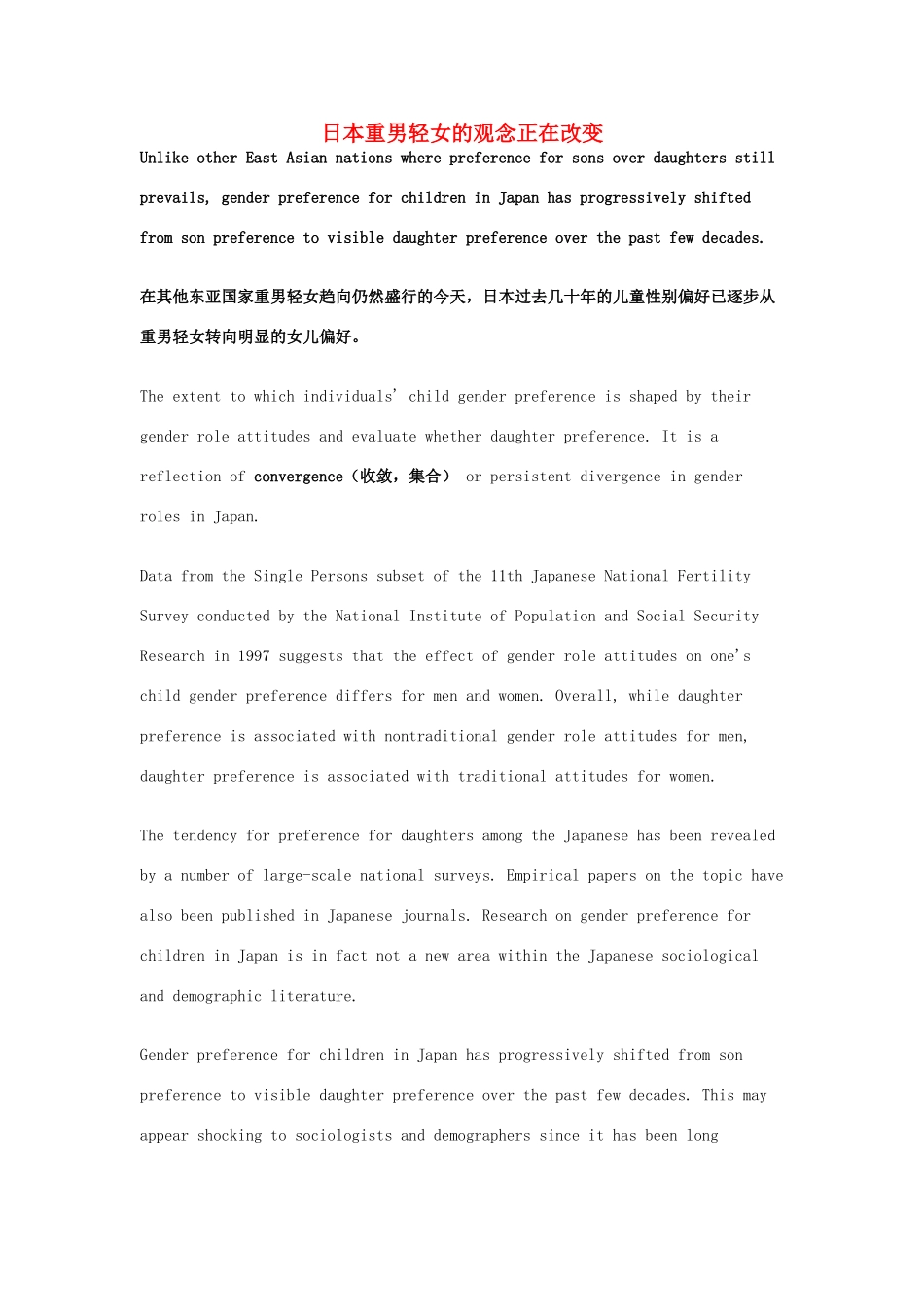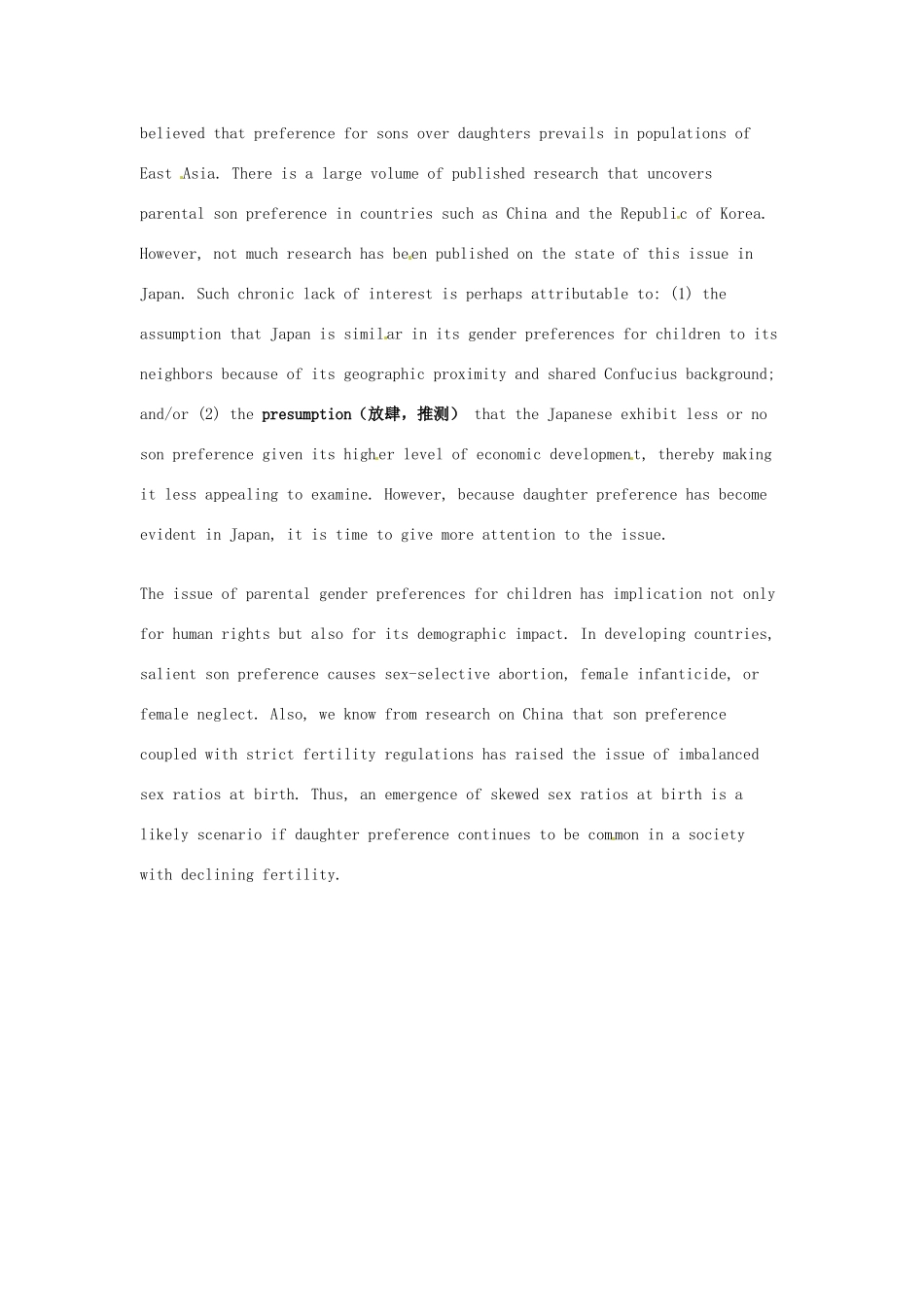日本重男轻女的观念正在改变Unlike other East Asian nations where preference for sons over daughters still prevails, gender preference for children in Japan has progressively shifted from son preference to visible daughter preference over the past few decades.在其他东亚国家重男轻女趋向仍然盛行的今天,日本过去几十年的儿童性别偏好已逐步从重男轻女转向明显的女儿偏好。 The extent to which individuals' child gender preference is shaped by their gender role attitudes and evaluate whether daughter preference. It is a reflection of convergence(收敛,集合) or persistent divergence in gender roles in Japan. Data from the Single Persons subset of the 11th Japanese National Fertility Survey conducted by the National Institute of Population and Social Security Research in 1997 suggests that the effect of gender role attitudes on one's child gender preference differs for men and women. Overall, while daughter preference is associated with nontraditional gender role attitudes for men, daughter preference is associated with traditional attitudes for women. The tendency for preference for daughters among the Japanese has been revealed by a number of large-scale national surveys. Empirical papers on the topic have also been published in Japanese journals. Research on gender preference for children in Japan is in fact not a new area within the Japanese sociological and demographic literature. Gender preference for children in Japan has progressively shifted from son preference to visible daughter preference over the past few decades. This may appear shocking to sociologists and demographers since it has been long believed that preference for sons over daughters prevails in populations of East Asia. There is a large volume of published research t...

